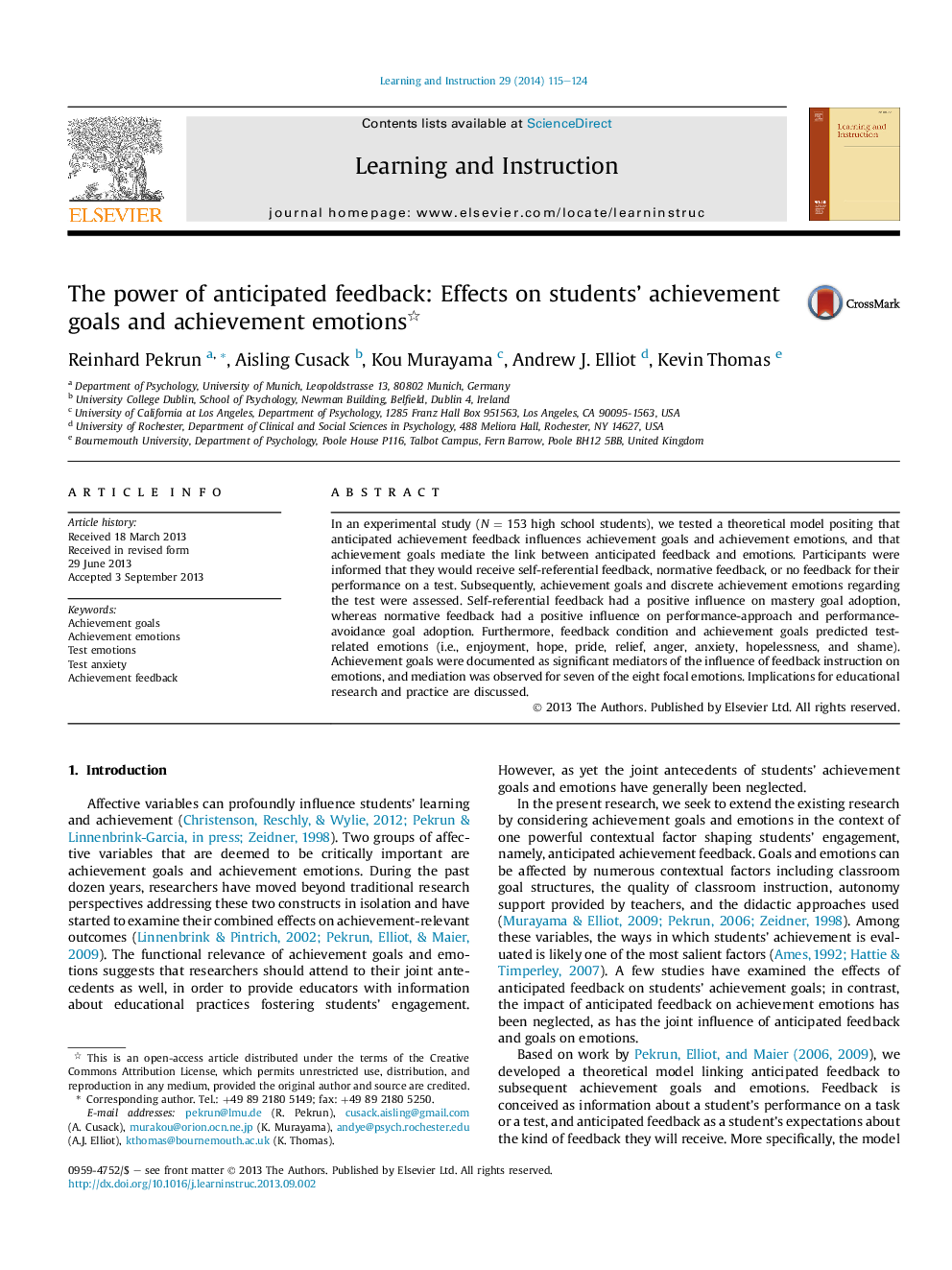| Article ID | Journal | Published Year | Pages | File Type |
|---|---|---|---|---|
| 6845835 | Learning and Instruction | 2014 | 10 Pages |
Abstract
In an experimental study (NÂ =Â 153 high school students), we tested a theoretical model positing that anticipated achievement feedback influences achievement goals and achievement emotions, and that achievement goals mediate the link between anticipated feedback and emotions. Participants were informed that they would receive self-referential feedback, normative feedback, or no feedback for their performance on a test. Subsequently, achievement goals and discrete achievement emotions regarding the test were assessed. Self-referential feedback had a positive influence on mastery goal adoption, whereas normative feedback had a positive influence on performance-approach and performance-avoidance goal adoption. Furthermore, feedback condition and achievement goals predicted test-related emotions (i.e., enjoyment, hope, pride, relief, anger, anxiety, hopelessness, and shame). Achievement goals were documented as significant mediators of the influence of feedback instruction on emotions, and mediation was observed for seven of the eight focal emotions. Implications for educational research and practice are discussed.
Related Topics
Social Sciences and Humanities
Psychology
Developmental and Educational Psychology
Authors
Reinhard Pekrun, Aisling Cusack, Kou Murayama, Andrew J. Elliot, Kevin Thomas,
